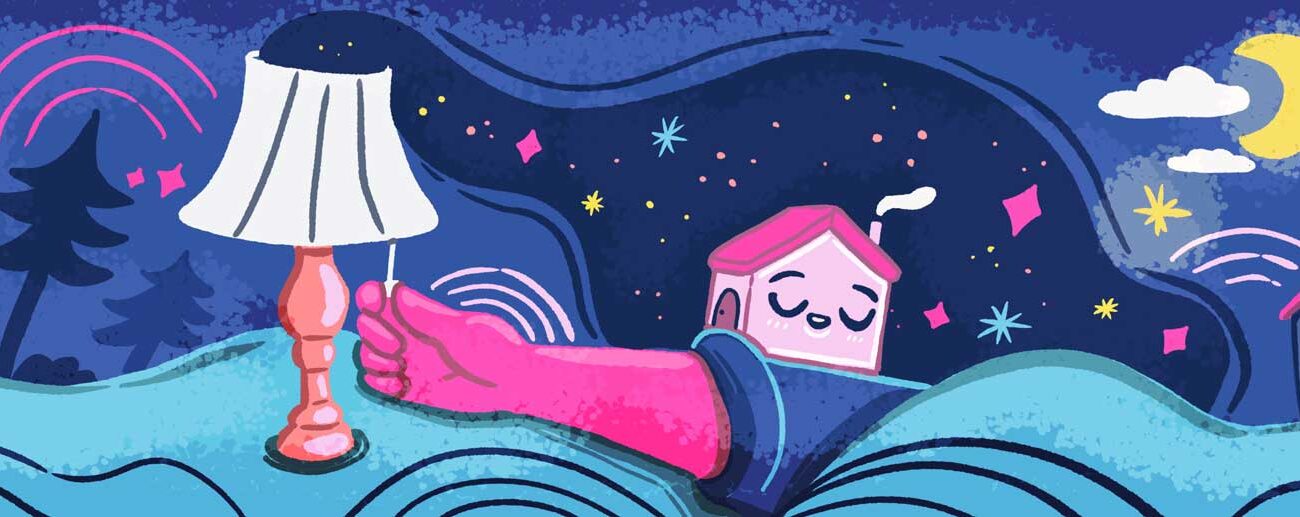By Misty Bowman
We are destroying half the environment in our city every 24 hours — and most of us don’t know it.
You may not have noticed because you were probably asleep while it was happening. Namely, we are destroying the night skies and the nocturnal creatures and fauna that rely on the dark to not just exist but thrive. We are tackling many demons in Eugene, but light pollution is not one of them and this ought to change.
Light pollution, for those who do not know, is human-made alteration to outdoor lighting levels from those naturally occurring. While light pollution can occur during the day, it’s most noticeable and has the largest impact at night. It’s one of the silent, blind killers of our ecosystem. A third of all insects trapped in a light fixture’s glare will die before sunrise of exhaustion — night after night, week after week. Streets with excessive streetlights can expect a 50 percent plummet in caterpillar populations. Every year approximately a billion birds die in collisions with brightly lit buildings.
The costs don’t stop at environmental, as it’s estimated wasted light costs every man, woman and child in America $12 a year — in the city of Eugene, that’s $2 million a year spent on lighting that harms the environment and us. That’s right — it hurts us as well. Artificial light at night (ALAN) has been linked to cancers, strokes and heart conditions.
DarkSky International is making wonderful headway in Oregon. We have the largest DarkSky Reserve in the world — the Oregon Outback in Lake County — with 2 million acres of protected Dark Skies. Oregon has three of only 130 DarkSky Parks in the world. We have two DarkSky Communities — Sisters and Antelope — and even a community in Lane County, Blue River, is pressing forward on a DarkSky application.
What’s more, Eugene’s position is unique. Many other cities of our size would be surrounded on all sides by light pollution, making the project of addressing light pollution almost foolish. However, we are the biggest and main light polluters not just in Lane County, but in all of Oregon. Out of the 53 Sky Quality Meters DarkSky Oregon has, the one in Eugene registers worse light pollution than the two in Portland. Reducing our light pollution could both open the skies above us and around us, and help an environment already battered by climate change.
For me, the issue is personal. The stars are something that should belong to all of us, and constantly having the night sky blotted out by businesses and individuals abusing their lights is unacceptable. Eugene’s own Outdoor Lighting Ordinance says our lights should be “efficient, effective and attractive outdoor lighting that is appropriate to the need and prevents glare.” Currently, this ordinance is relatively unenforced, ignored and 20 years old. It should be revised and enforced not just to help us and the environment, but to increase the beauty of the town at night — after all, who likes walking or driving down a road full of glare?
DarkSky International has a five-point checklist for all outdoor lighting called “The Five Principles of Responsible Outdoor Lighting.” I propose the Outdoor Lighting Ordinance be revised and enforced to follow this checklist. Lights in Eugene should be necessary, targeted (shielded to 90 degrees nadir), low level (only as bright as needed), controlled (on timers, motions or dimmer switches) and warm colored (yellow and orange scatter less than blue and white).
In my efforts to garner support for Dark Skies in Eugene, I’ve talked to many elderly residents of Lane County, and I have been surprised by how recent and fierce the light pollution has been — a generation ago, you could faintly see the Milky Way from Cottage Grove. Now we would need to drive to the outskirts of Oakridge on a clear, moonless night to have that same view, and that’s if you’re lucky.
I urge the citizens of Eugene to support the efforts of DarkSky Oregon, sign up for the DarkSky Oregon newsletter at DarkSkyOregon.org, and look into how you can help fight light pollution with something as simple as changing your porch light at DarkSky.org.
